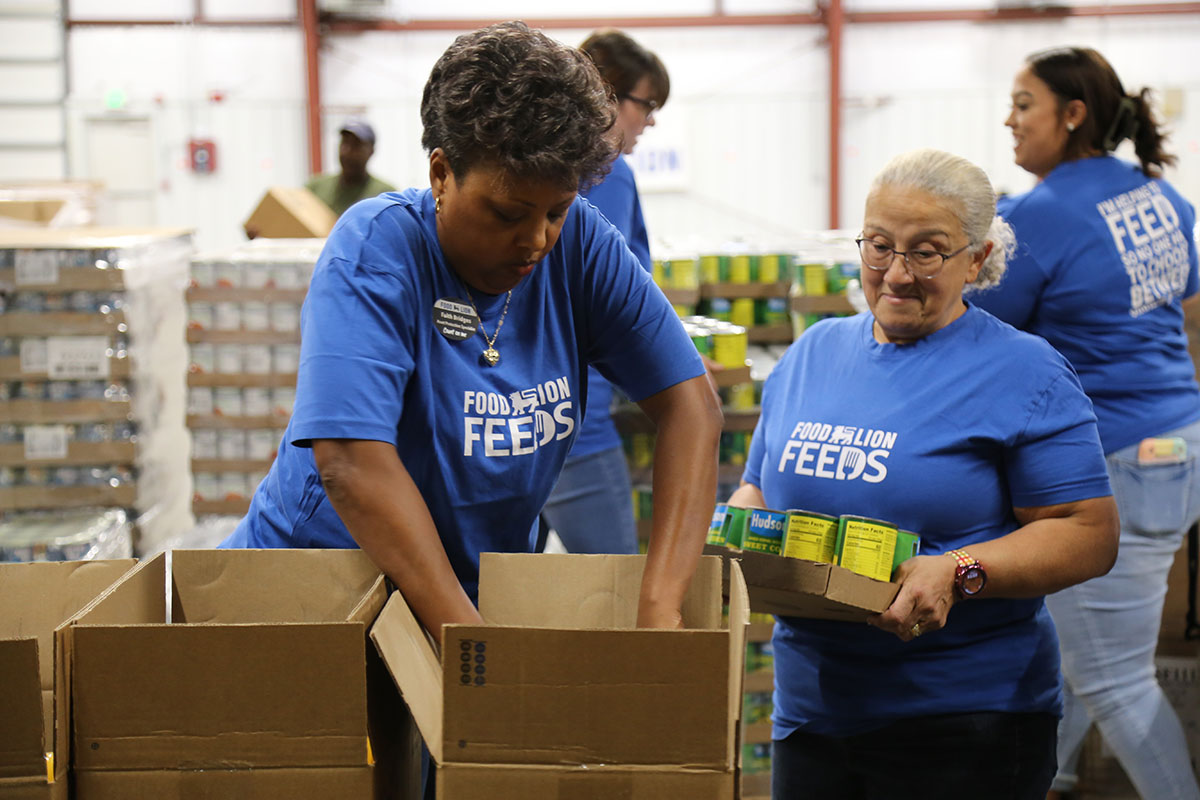By Doug Baker, Vice President, Industry Relations, FMI

In 1985, I started a new job in the grocery industry. My focus as a seventeen-year-old courtesy clerk was on properly bagging grocery items with a relatively new plastic bag that was becoming an industry standard. In case you’re curious, the trick is to ensure you don’t use all the items in boxes too soon because they make for good walls and stability.
Back then, the industry also had a very different strategy for stopping someone attempting to take something from the store without purchasing it. At that time, we called it shoplifting, five-finger discount, or in the most severe sense, robbery or burglary. Anything referred to as “organized” would remind us of the movie Scarface where Al Pacino portrayed mobster Tony Montoya. Today, Homeland Security Investigations (HIS) defines Organized Retail Crime as “the association of two or more persons engaged in illegally obtaining items of value from retail establishments, through theft and/or fraud, as part of a criminal enterprise.”
Recently, cases of shoplifting and Organized Retail Theft (ORT) have increased exponentially and, in some cases, forced a retailer to shut a store down due to the inability to profitably run the store or provide a safe environment for its associates and paying customers.
Factors Leading to Increased Theft
There are several factors at play with the rise in theft, including early releases from prison due to overcrowding, increased felony thresholds and even workforce issues in law enforcement. Food retailers are working with a variety of solution providers to deal with the increase in ORT. These solutions range from instore mitigation tactics provided by companies like Electronic Article Surveillance (EAS) tagging devices from ALL-TAG to the smart-sensing shelf insert TALLY that communicates with retailers the instant a product is removed from the shelf.
Partnerships for Solutions
However, we’re finding there is no one-size fits all solution to mitigating theft. As a result of increased felony thresholds, it’s no longer as simple as calling the local authorities and giving a statement. This means it is a very time-consuming effort for food retailers to bring the alleged to justice. Which is why companies like ALTO has created the ALTO Alliance bringing together law enforcement experts, attorneys and government officials to work with retailers to effect change in the community and courtroom.
Join Us to Learn More
This March 19 – 21, FMI will host its second annual Asset Protection & Grocery Resilience Conference at the Hyatt Regency, Orlando, where Loss Prevention Magazine’s Kevin McMenimen and Jac Britton will lead two ORC panels exploring this topic from the federal government and retailer perspectives. In addition, we’ll have retailer panels discussing topics from Active Assailant to Operational Shrink, and event Frictionless Shopping and Crisis Communications. Join us for the conversations, solution-sharing and networking.


 Industry Topics address your specific area of expertise with resources, reports, events and more.
Industry Topics address your specific area of expertise with resources, reports, events and more.
 Our Research covers consumer behavior and retail operation benchmarks so you can make informed business decisions.
Our Research covers consumer behavior and retail operation benchmarks so you can make informed business decisions.
 Events and Education including online and in-person help you advance your food retail career.
Events and Education including online and in-person help you advance your food retail career.
 Food Safety training, resources and guidance that help you create a company food safety culture.
Food Safety training, resources and guidance that help you create a company food safety culture.
 Government Affairs work — federal and state — on the latest food industry policy, regulatory and legislative issues.
Government Affairs work — federal and state — on the latest food industry policy, regulatory and legislative issues.
 Get Involved. From industry awards to newsletters and committees, these resources help you take advantage of your membership.
Get Involved. From industry awards to newsletters and committees, these resources help you take advantage of your membership.
 Best practices, guidance documents, infographics, signage and more for the food industry on the COVID-19 pandemic.
Best practices, guidance documents, infographics, signage and more for the food industry on the COVID-19 pandemic.
